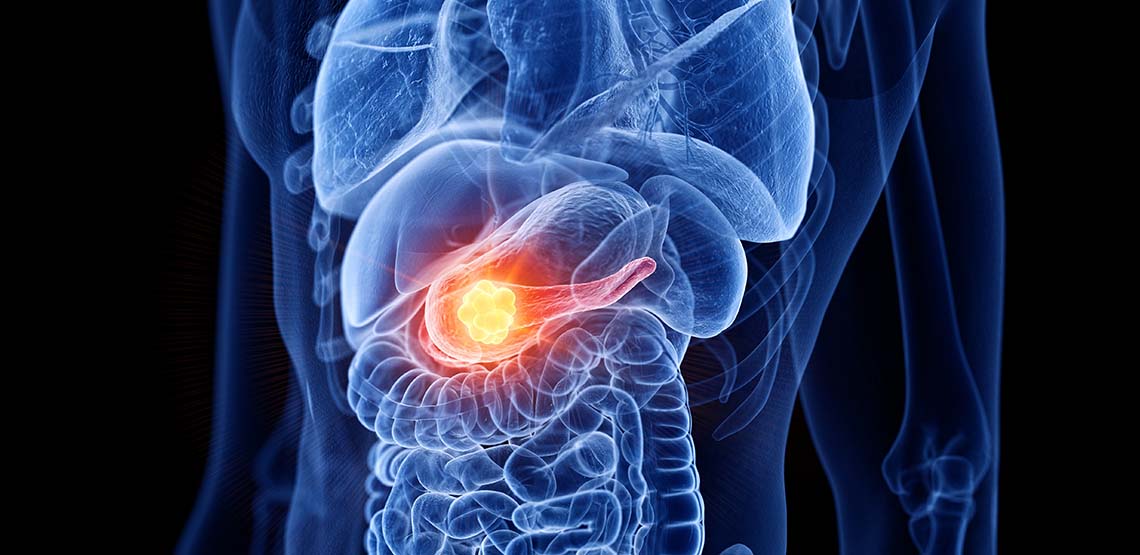What to Know About Exocrine Pancreatic Insufficiency
A diet with fats, proteins and carbohydrates provides you with the energy you need to tackle the day. For those with exocrine pancreatic insufficiency, consuming these energy boosters might not be enough if the body does not produce the enzymes it needs for nutrient absorption.
What Is Exocrine Pancreatic Insufficiency?
Exocrine pancreatic insufficiency (EPI) happens when your pancreas produces an insufficient amount of the exocrine pancreatic enzymes that help you digest food. Without a proper supply of these enzymes, fats, proteins and carbohydrates are poorly digested (especially fats). With EPI, there are not enough enzymes to effectively break down food into absorbable components, which can lead to maldigestion and nutritional deficiencies.
Symptoms of Exocrine Pancreatic Insufficiency
When it comes to issues with digestion, symptoms typically affect the guts, how you physically feel and your stool:
- Fatty stools (steatorrhea). These stools are the most common symptom of EPI and are characterized by oiliness, large size, pale color and distinct odor. Fatty stools are likely to float and may be paired with fecal incontinence or oily leakage.
- Uncomfortable gastrointestinal symptoms. People with EPI may experience such symptoms as intestinal gas or bloating.
- Weight Loss. Even though those with EPI may consume enough calories in the food they eat, their bodies may not absorb these calories, leaving them at a deficit.
Symptoms of Nutritional Deficiencies
Your gastrointestinal tract is not the only place you will notice symptoms—especially if your body is not absorbing nutrients properly. With EPI, you may have issues digesting the nutrients found in fats, proteins and carbohydrates, such as vitamins A, D, E and K. There are certain signs that you are not getting all the vitamins your body requires:
- Anemia (iron deficiency). This happens when you are not getting enough B12 or enough iron.
- Fatigue. You’ll feel exhausted if you are not getting enough calories from your food or your diet has other nutritional deficiencies.
- Bone disease. If you are not getting enough vitamin D, your body is at risk of losing bone density, putting you at risk for osteoporosis, fractures and other bone diseases.
- Bleeding disorders. Without a proper amount of vitamin K and other nutrients, you may notice that you bleed more easily, have issues forming blood clots, or other bleeding issues.
EPI Causes
EPI does not occur on its own; it is usually diagnosed as a result of damage to the pancreas—from a genetic condition, health issue, physical injury to the area, or because of other damage:
- Chronic pancreatitis (the most common cause of EPI in adults)
- Cystic fibrosis
- Type 1 diabetes
- Inflammatory digestive diseases, such as Crohn’s disease
- Alcohol abuse
- Pancreatic cancer
- Complications from surgery to or around the pancreas
How EPI Is Diagnosed?
If you are in gastrointestinal distress, make an appointment to see your doctor; these types of symptoms may be caused by one of several digestive issues that need a diagnosis. An EPI diagnosis is determined based on your medical history, current symptoms and diagnostic tests, including stool tests. Stool tests help determine a level of elastase in your stool (those with EPI have lower levels) or how much fat is in your stool (showing how well you absorb fats).
Related Search Topics (Ads)
Treatment Options
Treatment for EPI varies, depending on your symptoms and what caused the damage to your pancreas. See your doctor and treat the underlying cause first, as this may improve your EPI symptoms.
Pancreatic Enzyme Replacement Therapy (PERT)
PERT is the primary treatment for EPI; it is a medication called pancrelipase. Take this medication every time you eat (including snacks). It gives the body the enzymes the pancreas does not produce anymore—the ones that break down the nutrients in food. Talk to you your doctor about your Pancrelipase dosage and when you need to take it.
Vitamins and Supplements
If you are low on vitamins and minerals, your doctor may send you for blood tests. Based on this information, they can see which nutrient levels are outside of the normal range and can advise which vitamins and supplements you need.
Manage Your Diet
Clean up your diet and make sure you are eating the right types of food. For fat sources, pass on the processed foods and red meat; instead, switch to plant-based fats (such as nuts, seeds, avocado, etc.) or fatty/oily fish (such as tuna or salmon). Lower your fiber intake as well; even though it is healthy it can be hard on digestion. If you are unsure how to build a nutrient-rich diet, seek the professional advice of a dietician to help create a meal plan that works for you.
Lifestyle Changes
There are a couple of lifestyle changes you can make that benefit your pancreas and digestion. First, eliminate or decrease activities that damage the pancreas, such as smoking or drinking alcohol. Second, when it comes to eating, overhaul your diet and change when you eat too. For example, instead of eating a couple of large meals each day, have several small meals instead. Lesser portions help your small intestine absorb more nutrients than large meals.
Prevention Methods
The best way to avoid EPI is to keep your pancreas healthy and a lot of that care falls under the jurisdiction of diet and overall health. Some ways to keep your pancreas healthy include a low-fat diet, avoiding alcohol and smoking, staying hydrated and checking in with your doctor if you notice any symptoms. Unfortunately, some causes, such as genetic conditions or other health issues, are unavoidable but addressing these medical conditions may minimize EPI symptoms.
Energy is not just about what you eat, but also how well your body absorbs the nutrients from your food during digestion. With some dietary adjustments, lifestyle changes and PERT, you can manage your symptoms of EPI and have all the energy you need to power through the day.


